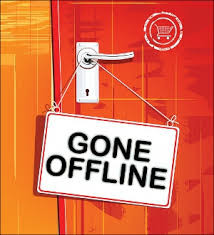Before I learned to unplug, I used to feel an indescribable angst and restlessness on weekends. I didn’t understand where it came from until one Saturday in my 20s, as my Q train rattled across the Manhattan Bridge, I opened the New York Times Magazine and lost myself in a piece that offered an explanation – and remedy. The author suggested it was time to bring back the Sabbath – not in a religious sense, but as a cultural antidote to the frenetic pace of modern life. The idea captivated me.
A decade later, my days are immeasurably faster and fuller – and it’s not just that I now run a business and have two toddlers at home. The main culprit is the addictive allure of our devices which have been optimized to hijack our attention, without regard for their impact on our quality of life. The ability to connect anytime and anywhere has created an expectation that we are always on, always responsive, and always productive. Astoundingly, 87% of us wake up and go to sleep with our phones and on average we tap and click our devices more than 2,600 a day.
We’re beginning to see the harm this is causing (apparently Smartphones are the new Cigarettes) and that, ironically, this epidemic of overworking is making us less productive, not more. Courtney Martin recently wrote about the benefits of the sabbatical, and Anne Marie-Slaughter shared a similar message: We can’t work all the time. My all-time favorite piece on the topic is Mark Morford’s poignant ode to microtasking, aptly titled, Hurry up get more done and die.
So if the overworking is counterproductive, why are we still doing it? Or, as the Harvard Business Review asked, If you’re so successful, why are you still working 70 hours/week?
Well, I’m not!
Ten years ago, I signed up for my first week-long silent vipassana retreat. I was mid-way through business school and had a nagging sense that I needed some time to downshift from all the doing to focus on simply being.
After a few days watching my restless monkey mind, the noise settled, and a sense of ease and clarity took its place. Everything – sights, sounds, tastes and feelings – became brighter. I left the experience carrying questions I’ve been living with ever since: How can I balance my ambitious striving with the need for rest? How will I develop a more wholesome relationship with my devices?
My silent retreat is now an annual ritual. While it initially felt self-indulgent, I’ve realized that it’s a lifeline. It’s me putting my oxygen mask on first so I can be of service to others.
But I know once a year isn’t enough. What we do everyday matters more than what we do once in a while, so I’ve developed other ways to exercise the same muscles of mindfulness and quiet throughout the year.
Now, I start each day with a meditation. And to never rationalize myself out of it, I’ve set the bar low. Really low. One minute. And once I take a seat on the cushion, one minute typically becomes many more. Sitting still in the morning puts me in the driver’s seat of my day. I’ve also created “no phone zones” for myself, including elevators and bedrooms.
Beyond this, I’ve committed to unplug every Saturday – creating my own digital “sabbath”. On Saturdays I look people in the eye, and they meet my gaze. I smile at strangers and realize – often with a pang of remorse – how many smiles I miss every day when I’m absorbed in my phone. I let my mind wander when I’m standing in line, making space for fresh and generative thoughts.
Saturdays help me remember that sometimes we have to go slow to go fast. That there’s joy in being, not just doing. And that sometimes it’s only when I stop trying so hard – to listen, to write, to rest – that I find myself actually doing the thing. And when I’m there, it feels like flying.
It’s HARD. Every Saturday I feel the pull to check my email or escape into Instagram. But when I resist it, I know I’m better for it. Real life is juicier than any distraction.
As a leader, my job is to learn out loud, and to lead from the inside out. At Global Citizen Year, the social enterprise I founded and lead, we’re creating a work environment where people are encouraged – and expected – to show up whole. Monday mornings start with an optional meditation and we joke that “power yoga is the new power lunch.” We offer a paid sabbatical every 3 years, and a flexible time off policy that encourages staff to take the time they need, when, how and where they need it. As long as you’re getting your work done, no one is counting your vacation days. Because we know we’ll get further, faster when everyone brings their best self to work.
So although National Day of Unplugging has passed, I’m reminded why I unplug every week. I unplug because life is too fast and too short, and I don’t want to miss it. I unplug because it helps the confusion clear and the insights pop. I unplug because it makes life more vivid. I unplug so that when my kids giggle, my heart can burst. I unplug because it’s the only way I’ll become kinder, wiser and more catalytic.
Why will you unplug?


